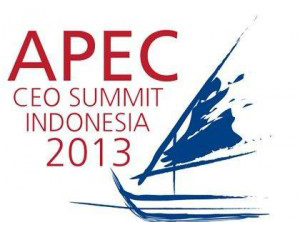TPP could be slimmed down to get it off the ground
Op-Ed Commentary: Chris Devonshire-Ellis
 BALI, Oct. 9 – The Trans-Pacific Partnership Agreement – touted by Washington as a trade pact that excludes China but includes the United States, Japan, Canada, Mexico, Australia, New Zealand, Peru, Chile, Malaysia, Brunei, Singapore and Vietnam – has also been in focus at the recent APEC meetings this past week in Bali, Indonesia.
BALI, Oct. 9 – The Trans-Pacific Partnership Agreement – touted by Washington as a trade pact that excludes China but includes the United States, Japan, Canada, Mexico, Australia, New Zealand, Peru, Chile, Malaysia, Brunei, Singapore and Vietnam – has also been in focus at the recent APEC meetings this past week in Bali, Indonesia.
Essentially designed as a trade incentive that will encourage the wealthier members of the proposed bloc to invest in manufacturing technologies in the less developed members, it has been criticized by China who sees it as an attempt to actively support direct competition to their own export manufacturing dominance in the region. For example, the TPP would see Vietnam benefit from American, Japanese and Australian investment into their textiles industry, upgrading Vietnamese production facilities and allowing them to sell to the developed markets. At present, 90 percent of Vietnamese textiles and garments do not meet the high standards of quality suitable for American markets.
The United States has pressed for a final push to get the agreement signed off by the end of the year. However, in doing so, some of the proposed members may have to drop out if they cannot agree on market access proposals to their domestic markets. Additionally, some of the major American companies here such as Wal-Mart would prefer “no compromise” on the agreement and for negotiations “not to be rushed.”
“For Wal-Mart, we would like to see a high-quality agreement, in that no sectors and interests are excluded. That means there should be no compromises that leak into the process for the purpose of speed,” Wal-Mart CEO Scott Price mentioned.
However, U.S. officials have stated that the agreement might not eliminate all tariffs among the 12 countries if it is to be ready by December. The United States is under pressure to reduce tariffs on products such as sugar, dairy, footwear and clothing, while in exchange its TPP partners would adopt new rules on digital trade, the operations of state-owned enterprises, and improvements in worker employment conditions.
The United States, which has calculated that as many as 50,000 jobs are created in the country for every US$1 billion worth of exports, could seek to exclude some of the proposed TPP members to ensure an agreement is reached. While some may complain that in doing so the TPP could be watered down, I personally think the most important aspect is to get it done. Other potential members can then decide what to do later on, and may see the opportunities once an initial structure is in place.
Like regulatory aspects, it is often better to get them on the statute first and debate about the modifications later. However, what would be key for the TPP in Asia especially is that Vietnam is included from the start. That will have a major impact on helping make China realize it has to start being more competitive in global export manufacturing – something the Chinese leaders, despite their assurances of moving to a consumer-based economy, still seem to be pre-occupied with when it suits them.
Chris Devonshire-Ellis is the Founding Partner of Dezan Shira & Associates – a specialist foreign direct investment practice providing corporate establishment, business advisory, tax advisory and compliance, accounting, payroll, due diligence and financial review services to multinationals investing in emerging Asia. Since its establishment in 1992, the firm has grown into one of Asia’s most versatile full-service consultancies with operational offices across China, Hong Kong, India, Singapore and Vietnam as well as liaison offices in Italy and the United States.
For further details or to contact the firm, please email china@dezshira.com, visit www.dezshira.com, or download the company brochure.
You can stay up to date with the latest business and investment trends across Asia by subscribing to Asia Briefing’s complimentary update service featuring news, commentary, guides, and multimedia resources.
Related Reading
 Are You Ready for ASEAN 2015?
Are You Ready for ASEAN 2015?
ASEAN integration in 2015, and the free trade agreements China has signed with ASEAN and its members states, will change the nature of China and Asia focused manufacturing and exports. In this important issue of Asia Briefing we discuss these developments and how they will impact upon China and the global supply chain.
 An Introduction to Tax Treaties Throughout Asia
An Introduction to Tax Treaties Throughout Asia
In this issue of Asia Briefing Magazine, we take a look at the various types of trade and tax treaties that exist between Asian nations. These include bilateral investment treaties, double taxation agreements, and free trade agreements – all of which directly affect businesses operating in Asia.
 An Introduction to Development Zones Across Asia
An Introduction to Development Zones Across Asia
In this issue of Asia Briefing Magazine, we break down the various types of development zones available in China, India and Vietnam specifically, as well as their key characteristics and leading advantages.
 Expanding Your China Business to India and Vietnam
Expanding Your China Business to India and Vietnam
This issue of Asia Briefing Magazine discusses why China is no longer the only solution for export driven businesses, and how the evolution of trade in Asia is determining that locations such as Vietnam and India represent competitive alternatives. With that in mind, we examine the common purposes as well as the pros and cons of the various market entry vehicles available for foreign investors interested in Vietnam and India.


